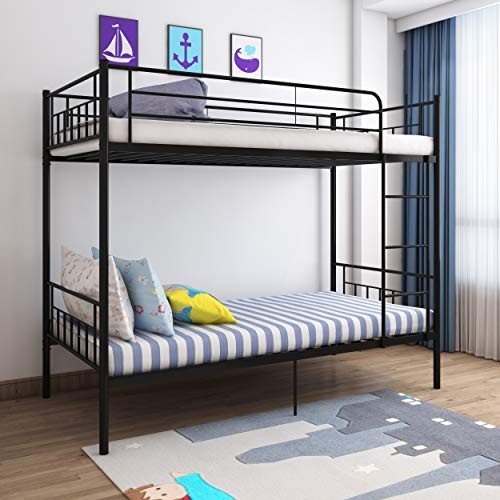Bunk Beds for Kids: A Comprehensive Guide
Bunk beds have been a popular choice for children's bedrooms for many years. They offer a space-saving option that makes the most of floor area, supplies enjoyable climbing up alternatives, and comes in a range of styles that attract children's imaginations. This article explores the advantages, factors to consider, styles, and security functions associated with bunk beds for kids.
Benefits of Bunk Beds
Bunk beds present numerous benefits that make them an attractive choice for families. Here are some crucial advantages:
Space Saving
- Bunk beds permit 2 or more children to share a space without sacrificing space for play or other activities.
Cost-efficient
- Purchasing a single bunk bed can be more cost-effective than buying two separate beds.
Fun Factor
- Kids often see bunk beds as an enjoyable place to sleep and play, cultivating a sense of experience.
Versatility
- Bunk beds are offered in various configurations, including L-shaped, loft beds, and even convertible styles that can change as kids grow.
Organization
- Lots of bunk beds come with built-in storage alternatives, such as racks and drawers, assisting keep spaces organized.
Secret Considerations Before Purchasing
Before buying a bunk bed, it's necessary to consider certain factors, such as:
- Space Requirements
Measure the space to make sure that there suffices vertical space, permitting sufficient headroom on the top bunk. - Age of Your Children
Consider their age and maturity. Many producers advise that children under 6 need to not oversleep the top bunk due to security concerns. - Weight Limit
It's crucial to inspect the weight limits of the bunk bed for both the leading and bottom bunks to make sure safety. - Design Preferences
Select a style that matches the room's decoration and the kids's preferences. - Material
Bunk beds are available in various materials, such as wood or metal. Each has its benefits and downsides relating to resilience and visual appeals.
Styles of Bunk Beds
Bunk beds can be found in different styles to fit different visual appeals and practical needs. Here's a list of some popular styles:
- Standard Bunk Beds
Classic stacked beds that consist of 2 beds constructed one above the other. - Loft Beds
A bed elevated high off the ground, with space underneath for a desk, play area, or storage. - L-Shaped Bunk Beds
2 beds arranged in an L-shape, providing more floor space and a special style element. - Twin Over Full Bunk Beds
These alternatives feature a twin bed on the top and a full-sized bed on the bottom, accommodating older children or adults. - Triple Bunk Beds
Developed for 3 kids, these beds normally consist of 3 stacked beds, perfect for larger families.
Safety Features to Consider
Ensuring the safety of children using bunk beds is paramount. Here are some security includes to try to find before buying:
- Guardrails
A bunk bed ought to include tough guardrails on the top bunk to avoid unexpected falls. - Ladders
Make sure that the ladder is safely attached and simple for kids to navigate securely. - Stability
Try to find bunk beds with lower center of mass and wide bases to supply better stability. - Quality Construction
Pick beds made from durable materials that satisfy safety standards, such as ASTM (American Society for Testing and Materials) policies.
FAQs About Bunk Beds
1. What age is proper for a leading bunk?Generally, kids aged six and older are recommended for oversleeping the leading bunk. 2. Are bunk beds safe for toddlers?Most specialists recommend against
placing young children in the top bunk due to the
danger of falls and inappropriate ladder use. 3. Sale On Bunk Beds ogallagher.link be separated?Many bunk beds are designed to be separated into 2 standalone beds,
providing included versatility as children grow
. 4. How do I keep a bunk bed?Regularly check for loose screws and wear, keep bed mattress clean, and ensure that the bunk bed is
stable to prolong its lifespan. 5.
Are there any special mattress requirements for bunk beds?Yes, mattresses for bunk beds must fit snugly without leaving spaces. Generally, thinner bed mattress
(around 6 to 8 inches )are advised for top bunks for security. Bunk beds use a versatile, useful, and fun solution for children's sleeping arrangements, taking full advantage of space while accommodating several kids in one space. By thinking about the crucial factors
of design, security, and space, parents can make a notified choice when choosing the right bunk bed for their children's requirements. With the ideal care and maintenance, a bunk bed can be a precious furniture piece that offers years of usage and pleasure for kids. Summary Table of Bunk Bed Styles Style Description Best For Standard Bunk Beds Classic design, 2 stacked beds Smaller spaces Loft Beds Elevated bed with open space below Research study or play areas L-Shaped Bunk Beds 2 beds in an L-shape
Added floor space Twin Over Full Twin on the top,
| full on bottom Accommodating older children Triple | ||||||
|---|---|---|---|---|---|---|
| Bunk Beds | 3 stacked beds | Bigger households By understanding | the different choices offered, designated considerations for safety and functionality, and proper age standards, families | can pick the ideal bunk bed that not | only improves their home | but also guarantees a safe and |
| satisfying sleeping environment | for their kids.

|
